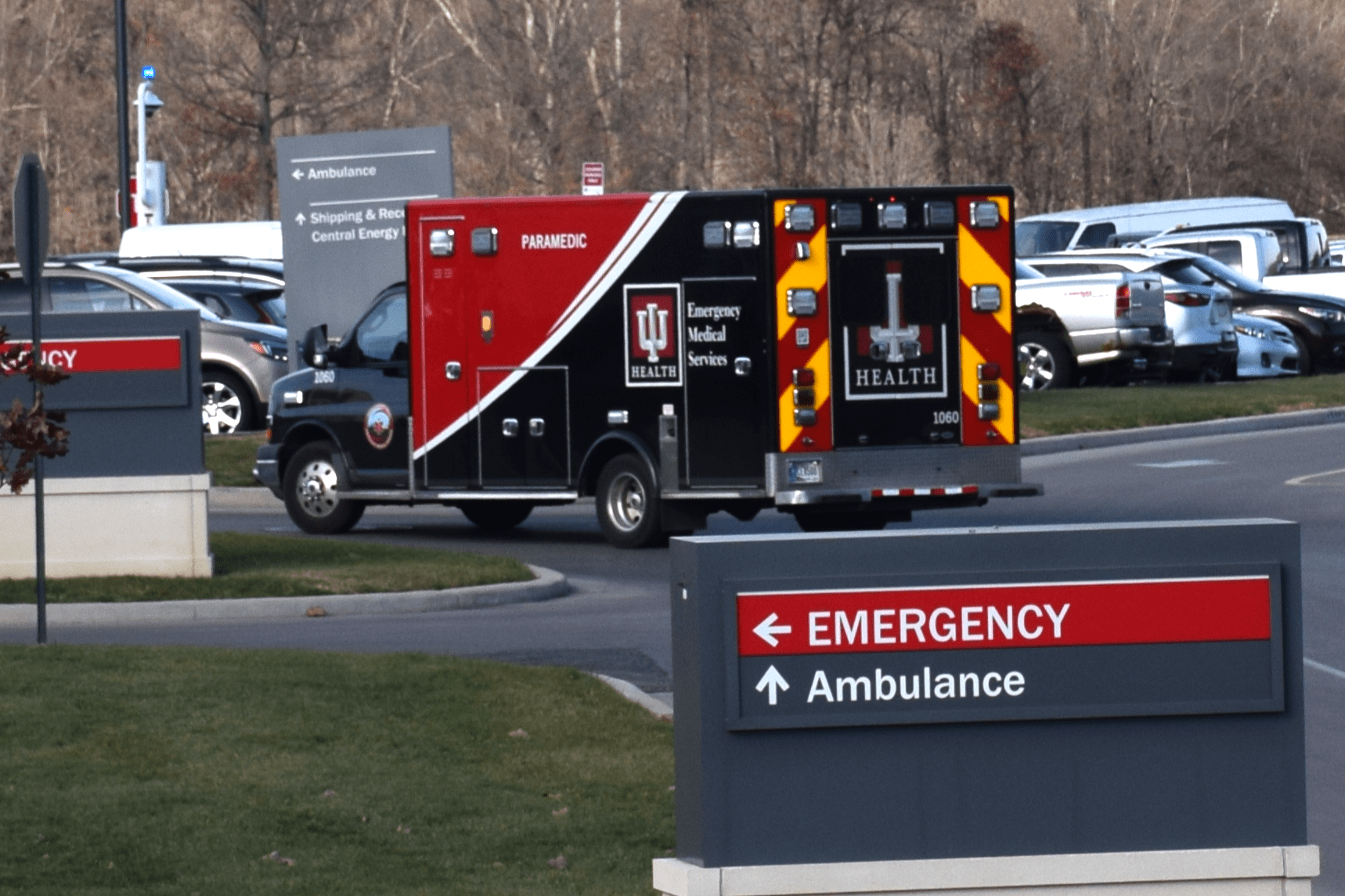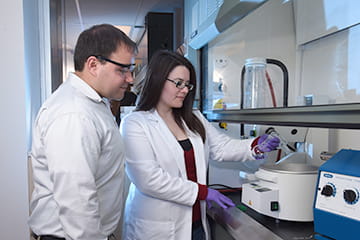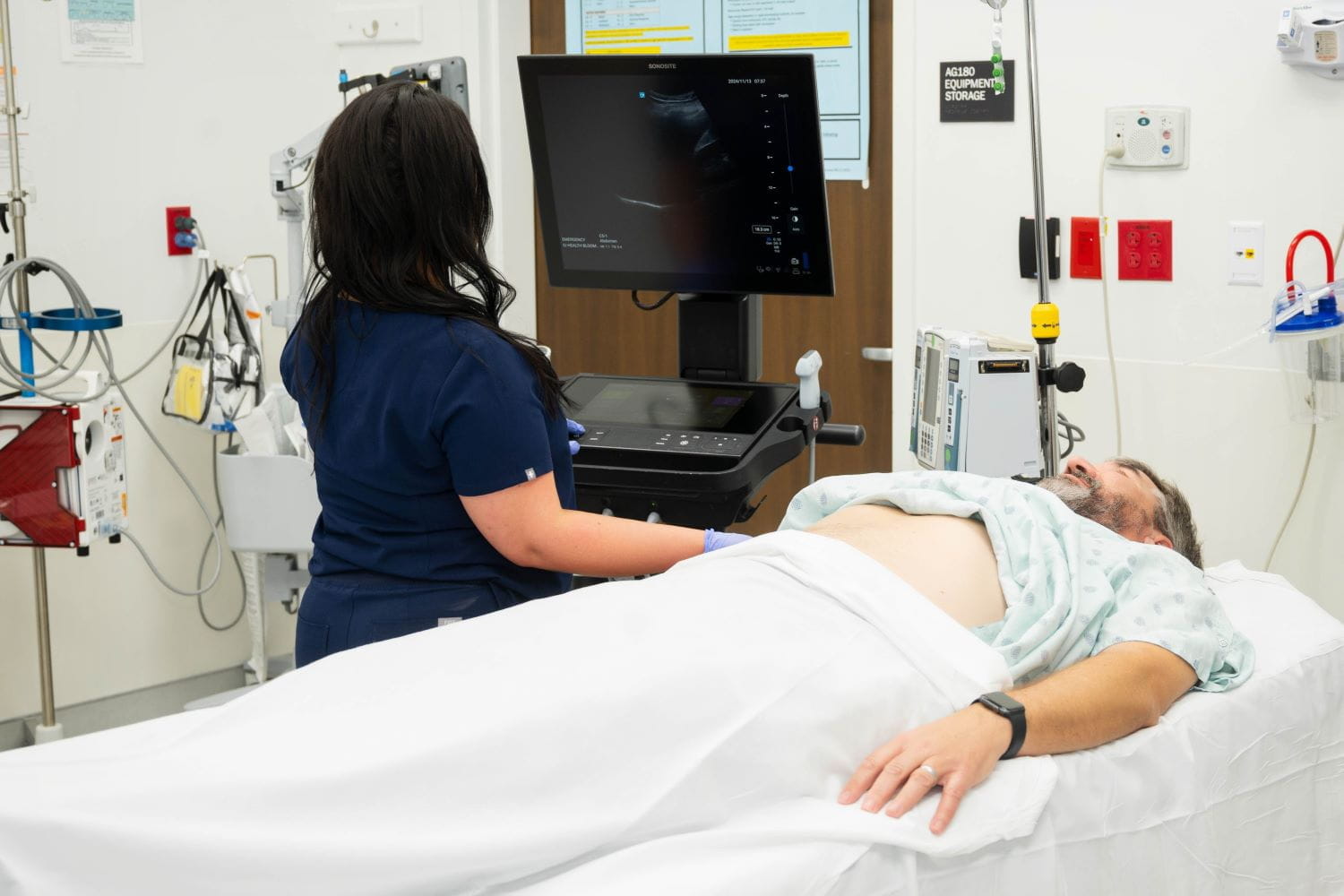The Indiana University School of Medicine—Bloomington Emergency Medicine Residency offers comprehensive training in emergency medicine. This includes specific expertise in a number of important topics relevant to your future practice.

EMS
Prehospital care is a distinct and directly connected part of emergency training. Residents will have ongoing longitudinal EMS training throughout their time in the program. Our residents will be prepared to appreciate, engage and educate on EMS topics.
Areas of emphasis will include understanding EMTALA, keys to quality prehospital care, barriers to timely care and cutting-edge research in EMS practice. Residents will work alongside EMTs, paramedics and EMS medical directors completing ride-alongs and gaining an appreciation for medical direction. Understanding these principles allows physicians to be excellent partners to our EMS colleagues, improve care for patients and their communities and develop leadership skills for their teams.
Our location near the main campus of Indiana University presents innumerable opportunities for event medicine. Our faculty serve in multiple EMS roles throughout the region including medical direction for Lifeline in Bedford, Paoli and the surrounding counties as well as medical direction for Indiana University EMS.
For residents with increased interest in EMS, our residency program offers an advanced EMS elective that can be completed by PGY-2 or PGY-3 residents.
.jpeg?rev=3a2232341e4b4b6f92836b0d298d5efa&la=en&h=1024&w=672&hash=0D2643DD43283B2D44863C2F9928F1A1)
Global Health
Global emergency medicine provides residents with invaluable opportunities to enhance their clinical skills, cultural competency and humanitarian outlook. In international settings you will encounter a diverse range of medical conditions, often in resource-limited environments where you will learn to foster adaptability and creativity in patient care. Participating in global initiatives promotes collaboration among healthcare professionals, contributing to a global community dedicated to improving emergency care worldwide.
Interested and motivated residents will be given the opportunity to engage in global health and international medicine opportunities domestically and internationally. Austin Lee, MD, is the program’s global health champion and has several ongoing partnerships and research projects in Kenya that trainees will have the chance to collaborate on.
Indiana University has been a long-time global health leader with many opportunities available locally and internationally. For more information see the Indiana University Center for Global Health and the IU-led Academic Model Providing Access to Healthcare (AMPATH). Clinical opportunities for students and residents interested in international emergency medicine exist in Africa, Latin America and Asia.
The GME office also offers an interdisciplinary Global Health Pathway. The program provides a longitudinal curriculum, mentorship opportunities, scholarly projects and collaboration across medical specialties.

Research
Participation in research during residency training provides an invaluable experience for residents to understand evidence-based practice and become lifelong learners through developing skills in critically appraising topics. The IU School of Medicine—Bloomington Residency offers a longitudinal research curriculum and an elective rotation in research for our PGY-2 and PGY-3 residents.
The research curriculum is designed to develop your understanding and experience in research to cultivate lifelong learning and an ability to critically appraise scientific evidence. Further, you will learn about human subjects research, the role of an institutional review board and the continuum from developing a research question through to publication. A core function of the curriculum is to impart an understanding of the ethics of research. The curriculum will provide opportunities for engaging with all phases of research beginning with the conception and implementation to submission for presentation and/or publication. Importantly, it will develop your knowledge to best apply evidence to patient care and explain evidence in plain language to patients and families.
By the time you graduate from the IU School of Medicine—Bloomington Residency, you will be able to demonstrate your role in scholarly activity. Research can take place across numerous domains including basic science, education, translational science, patient care and/or population health. Opportunities are available in both the hospital and global health settings while there are many opportunities for advanced training and/or collaborative projects with undergraduate and graduate programs within the IU Bloomington community.
You will feel empowered to draw on the diverse knowledge and expertise within the Department of Emergency Medicine and the broader medical center and university. Targeted experience and assistance can be found to support in seeking funding sources, computer skills, library and research skills, IRB review, statistical methods and manuscript preparation/submission as needed.
Examples of research-focused projects:
- Peer-reviewed grants
- Quality improvement and/or patient safety initiatives
- Systematic reviews, meta-analyses, review articles, chapters in medical textbooks, or case reports
- Creation of curricula, evaluation tools, didactic educational activities, or electronic educational materials
- Contribution to professional committees, educational organizations, or editorial boards
- Innovations in education and training

Ultrasound
Point-of-care ultrasound (POCUS) is fundamental to providing innovative and efficient care in today’s emergency departments. Emergency ultrasound (EUS) utilization has been shown to expedite diagnosis and decrease procedure complications. EUS is considered a core skill for emergency physicians and a required part of emergency medicine residency training.
Our progressive POCUS curriculum aims to develop and maintain ultrasound skills throughout all three years. Interns will participate in POCUS boot camp during the orientation block and complete a dedicated ultrasound block including didactics, one-on-one hands-on scanning with fellowship-trained EUS faculty, weekly quality assurance review, and ultrasound simulation. An advanced ultrasound elective is available in the second and third years. Monthly ultrasound didactics are built into the conference schedule to reinforce knowledge and skills during all three training years.